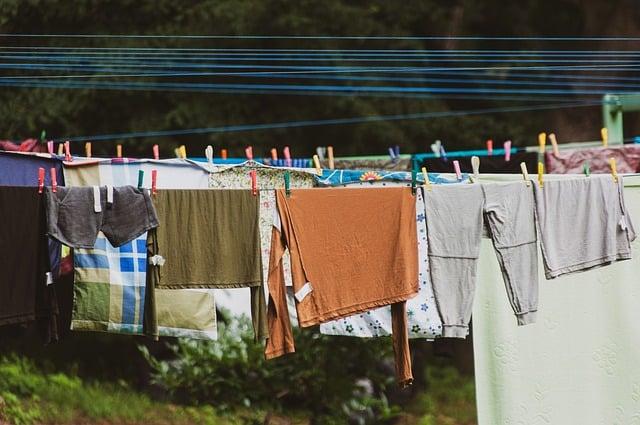In recent years, the proliferation of high-end household services has transformed the landscape of domestic life, offering unprecedented convenience and luxury to those who can afford it. These services, ranging from personal chefs and bespoke cleaning crews to on-demand laundry and home organization experts, promise to alleviate the burdens of everyday chores, allowing individuals to focus on what they deem more important. However, beneath the veneer of ease and opulence lies a growing concern: the promotion of wastefulness and excessive consumption. As these services become more entrenched in affluent lifestyles, they inadvertently contribute to a culture of disposability and unchecked indulgence. This article delves into the implications of this trend, exploring how the allure of convenience and luxury may be fostering an unsustainable cycle of consumption, with significant repercussions for both society and the environment. By examining the underlying dynamics and consequences of high-end household services, we aim to shed light on a critical issue that challenges our collective responsibility towards sustainable living.
The Allure of Luxury: Examining the Environmental Impact of High-End Household Services
In the realm of luxury, high-end household services often stand as symbols of opulence, promising convenience and exclusivity. Yet, these services come with a hidden cost that extends beyond the financial. The environmental implications are profound, as they often promote a culture of wastefulness and excessive consumption. When we look at services like bespoke cleaning, gourmet meal deliveries, and personalized laundry, they frequently prioritize aesthetics and perfection over sustainability. Consider the use of single-use plastics, excessive water consumption, and the carbon footprint associated with frequent deliveries. These elements contribute to a cycle that is not only unsustainable but also exacerbates environmental degradation.
- Single-use items: Many luxury services rely on disposable products, which significantly increase landfill waste.
- Resource consumption: High water and energy usage in maintaining pristine conditions and providing lavish experiences.
- Transportation emissions: Frequent deliveries and specialized services contribute to increased carbon emissions.
While these services cater to a desire for ease and comfort, their environmental impact cannot be ignored. The allure of luxury, while captivating, calls for a more conscientious approach where indulgence meets responsibility. It’s crucial to consider sustainable alternatives that align with both luxury and environmental ethics.
Beyond Convenience: How Premium Services Fuel a Culture of Overconsumption
Premium household services, while often marketed as solutions to modern life’s hectic pace, inadvertently nurture a culture of excessive consumption. The allure of these services lies in their promise to liberate consumers from mundane chores, yet this liberation comes at a cost. Convenience often masks the hidden environmental and social impacts of such indulgence. When personal chefs are on call, or when cleaning services are scheduled multiple times a week, the underlying message is clear: there is little need to be mindful of consumption or waste. This mindset, while convenient, encourages a detachment from the consequences of one’s consumption patterns.
- Increased Resource Utilization: The demand for premium services often leads to a higher use of resources, from water and electricity to food and cleaning supplies, which are used with less consideration for sustainability.
- Shortened Product Lifecycles: With the constant turnover of items and services, products are replaced more frequently, contributing to a cycle of waste and disposability.
- Environmental Impact: The cumulative effect of these services results in a significant carbon footprint, as increased logistics, transportation, and service delivery require more energy and resources.
Ultimately, while these services provide immediate gratification and ease, they also foster an environment where overconsumption is normalized and even celebrated. By recognizing and addressing these patterns, consumers can make more informed choices that align with sustainable practices.

Rethinking Opulence: Strategies for Sustainable Living in Luxury Lifestyles
In the realm of luxury lifestyles, the allure of high-end household services often conceals a darker reality: the promotion of wastefulness and excessive consumption. While these services offer unparalleled convenience and comfort, they frequently come with a hefty environmental cost. From outsourced cleaning teams using chemical-laden products to personal chefs sourcing ingredients without regard for sustainability, the environmental footprint of these conveniences is staggering. High-end services can inadvertently encourage a mindset where resources are seen as endlessly available, leading to practices that prioritize luxury over responsibility.
To address this, those living in opulence can implement strategies that align luxury with sustainability. Consider adopting the following practices:
- Prioritize eco-friendly services: Seek out service providers who use sustainable practices, such as green cleaning companies or chefs who focus on local, organic ingredients.
- Invest in durable goods: Choose quality over quantity, selecting items that are built to last rather than those that cater to fleeting trends.
- Educate staff: Encourage household staff to engage in sustainable practices through regular training sessions and clear guidelines.
By integrating these approaches, luxury can transform from a symbol of excess into a model of sustainable living, setting a precedent for future generations.

Empowering Change: Practical Recommendations for Reducing Waste in High-End Households
To effectively tackle waste in affluent households, it’s essential to adopt a mindset of conscious consumption. High-end services often come with an abundance of packaging and unnecessary extravagance, making it crucial to choose services that prioritize sustainability. Start by opting for eco-friendly service providers who utilize recyclable or reusable materials. Encourage the use of biodegradable packaging and select products that are sourced locally to minimize carbon footprints. Moreover, luxury doesn’t have to mean wasteful; it can be synonymous with quality and longevity. Prioritize purchasing high-quality, durable goods that stand the test of time, reducing the need for frequent replacements.
Incorporating smart technology can further enhance efficiency and reduce wastage. Smart home systems that monitor and optimize energy usage can significantly cut down on electricity and water consumption. Encourage the integration of energy-efficient appliances and promote habits like turning off lights and electronics when not in use. Additionally, composting organic waste and recycling can be seamlessly integrated into daily routines with the right infrastructure. By adopting these practical steps, high-end households can not only maintain their luxurious lifestyle but also lead by example in the movement towards a more sustainable future.



